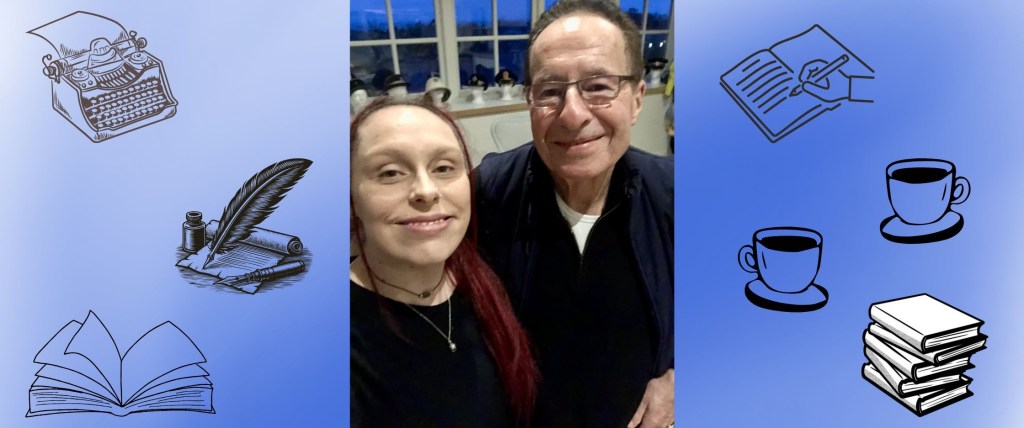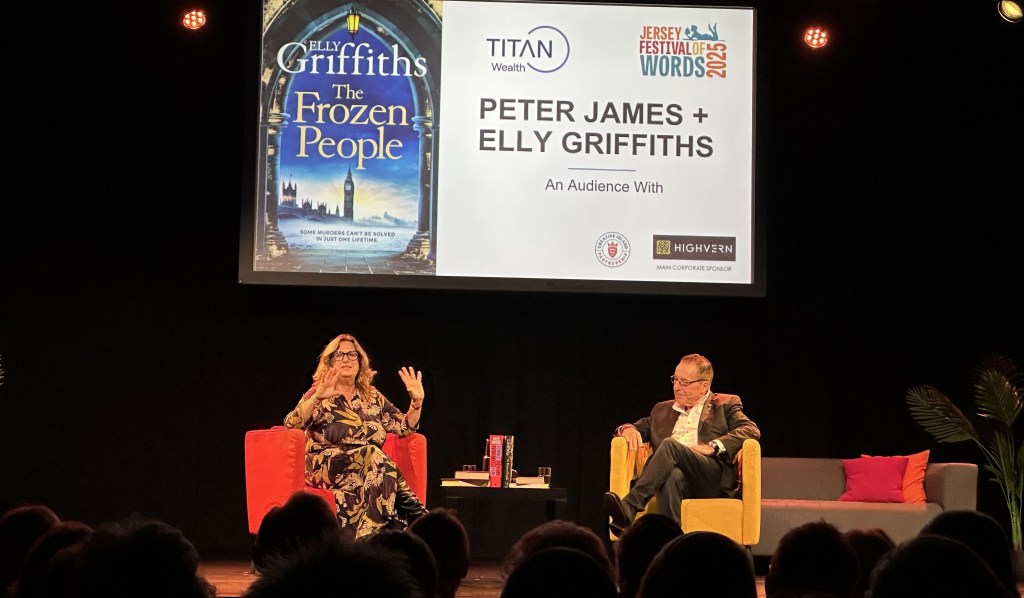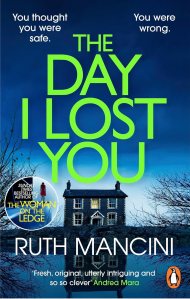
Whilst attending one of the many literary festivals I go to annually, I was fortunate enough to meet and talk to bestselling author, Peter James. I discovered that not only is he a fine and well-loved author, but a genuinely lovely bloke who also happens to live not too far away from me.
So, I cheekily asked him if he fancied catching up sometime for a coffee in order that I could pick his brain about writing. He smiled and said he would love to, which was both surprising and amazing in equal measure. It certainly was not the response I expected, I was gobsmacked. This famous bestselling author, who I rather admired, was willing to take time out of his busy schedule to have a coffee and chat with little old me. Somebody pinch me!
Afterwards, I wondered whether it would really happen. I’m not big and famous (yet, lol) and so I found it hard to believe, but sure enough, true to his word, we met up shortly after this festival for coffee (see photo evidence above for proof!) and he gave me some wonderful writing advice.
I’m privileged to share it with you now………
Peter James on Writing
Tips and Advice:
- Have an end goal: Set arbitrary deadlines to keep you on track.
- Set writing targets: So many pages a week, so many words a week. Whatever suits you best.
- Have a routine: Write at the same time every day. Protect your writing time.
- Create the right environment: Have a little ritual to get you in the zone. (He likes a vodka martini, very James Bond!)
Writing Process:
Peter writes the first 100 pages or so, editing as he goes. Then he does a read through to see if he’s happy with it. He has a team of readers who check it and tell him what they think. If it works, then he finishes the manuscript. If not, he makes the necessary changes.
He has a regular routine, doing 2 hours a day, 6 days a week. He starts at 6pm, as this is when he works best. It usually takes him 6 months to produce the final draft of a book this way, before it’s edited by his publishers.
PETER’S TOP TIP: Know your ending! Have in mind where you think you’re going so that you can get there. If it helps to do an outline, do that. Then you have a destination in mind, rather than not knowing.
An Insight: How he got started
Peter was always into stories, like me. He wanted to write a book and decided to give it a go, writing 3 spy novels, which didn’t do well. Then someone said to him, ‘write what you know’. He happened to have lots of police friends and this inspired him to write about that, which is how the idea for Roy Grace started. One of these police friends became the real life inspiration behind Roy Grace, and that person will review each book to ensure it is accurate and believable.
Peter does a lot of research. He uses many real life inspirations from cases and people. He also likes to pose the question of ‘what if?’ For instance, his first novel Dead Simple was inspired by the question: ‘What if someone played the worst prank ever on you (buried you alive) and then they all died?’ (If you haven’t read it, I highly recommend it. It is one of the most compelling books I’ve ever read. Find it here.)
Latest Book In The Series: The Hawk Is Dead
Peter discussed his latest book in the Roy Grace series at a local Festival of Writing event, whilst in conversation with the delightful Elly Griffiths (another fantastic and highly recommended author, you can check out her latest book The Frozen People here).
Apparently, it all started when Peter found out that he was Queen Camilla’s favourite author. He went over to introduce himself at a local event at her bequest. They struck up a conversation in which Peter suggested it would be wonderful if Buckingham Palace became the setting for a Roy Grace novel and, of course, Queen Camilla loved the idea. And so, a new Roy Grace adventure was born.
Peter wrote the first draft and sent it to Queen Camilla for her feedback. Suffice to say, she adored it.
The Hawk Is Dead was released today and is available to purchase via the link below.
The Blurb:
Roy Grace never dreamed a murder investigation would take him deep into Buckingham Palace . . .
Her Majesty, Queen Camilla, is aboard the Royal Train heading to a charity event in Sussex when disaster strikes – the train is derailed.
A tragic accident or a planned attack?
When, minutes later, a trusted aide is shot dead by a sniper, the police have their answer.
Despite all the evidence, Roy Grace is not convinced The Queen was the intended target. But he finds himself alone in his suspicions.
Fighting against the skepticism of his colleagues and the Palace itself, Grace pursues his own investigation. But when there is a second murder, the stakes rise even higher, and Grace is at risk of being embroiled in a very public catastrophe – and in mortal danger.
Failure at this level is not an option. But time is running out before a killer in the Palace will strike again . . .
Roy Grace is back with his most difficult case yet in the gripping new installment from number one bestselling author Peter James. BUY IT NOW HERE.












